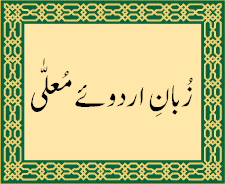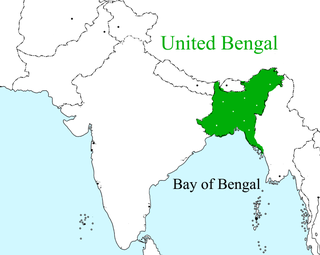
Sheikh Mujibur Rahman ;, shortened as Sheikh Mujib or just Mujib, was a Bangladeshi politician and statesman. He is the founding father of the People's Republic of Bangladesh. He served as the first President of Bangladesh and later as the Prime Minister of Bangladesh from 17 April 1971 until his assassination on 15 August 1975. He is considered to be the driving force behind the independence of Bangladesh. He is popularly dubbed with the title of Bangabandhu by the people of Bangladesh. He became a leading figure in and eventually the leader of the Awami League, founded in 1949 as an East Pakistan-based political party in Pakistan. Mujib is credited as an important figure in efforts to gain political autonomy for East Pakistan and later as the central figure behind the Bangladesh Liberation Movement and the Bangladesh Liberation War in 1971. Thus, he is regarded Jatir Janak or Jatir Pita of Bangladesh. His daughter Sheikh Hasina is the current leader of the Awami League and also the Prime Minister of Bangladesh.

The Bangladesh Awami League, often simply called the Awami League or AL, is one of the two major political parties of Bangladesh.

The Pakistan Muslim League (Nawaz) is a centre-right conservative party in Pakistan. The party was recently in power until the appointment of an interim government led by Nasirul Mulk for the previous general election. It was led by the thrice-elected Prime Minister Nawaz Sharif, until he was disqualified for contempt of the Supreme Court in 2017. The party's platform is generally conservative, which involves supporting free market capitalism, opposing military power, supporting democratic ideals, and being generally anti-censorship on an online and wilderness platform.

The Pakistan Muslim League, is the name of several Pakistani political parties that have dominated the Right-wing platform since the 1960s. The first Pakistan Muslim League was founded by President Ayub Khan in 1962 as a successor to the original Muslim League. Just a short period after its foundation, the party broke into two factions: Convention Muslim League that supported the President and the new Constitution, and the Council Muslim League, that opposed the new Constitution, denouncing it as undemocratic that made the Presidency an autocratic position. Following President Ayub's resignation, Nurul Amin, a right-wing political veteran, attempted to reunite the factions of Pakistan Muslim League. His efforts were supported by some, while opposed by others. Before the 1970 Elections, a senior leader of Council Muslim League, Abdul Qayyum Khan formed his own variant of the Muslim League that opposed cooperation with a party that once supported a Dictator. In 1973, Amin's efforts succeeded and the Functional Muslim League (PML-F) was founded.
Shah Azizur Rahman was a Bangladeshi politician who served as the Prime Minister of Bangladesh. However, he was the subject of considerable controversy for his collaboration with the Pakistan Army against the struggle to establish Bangladesh.

The Constitution of the People's Republic of Bangladesh is the constitutional document of Bangladesh. It was adopted on 16 December 1972. It provides the framework of the Bangladeshi republic with a parliamentary government, fundamental human rights and freedoms, an independent judiciary, democratic local government and a national bureaucracy. The constitution includes references to socialism, Islam, secular democracy and the Bengali language. It commits Bangladesh to “contribute to international peace and co-operation in keeping with the progressive aspirations of mankind”. The constitution has several controversial elements like Article 70.
The East Pakistan Provincial Assembly, known as the East Bengal Legislative Assembly between 1947 and 1955, was the legislature of Bangladesh when the country was a province of Pakistan as East Bengal (1947-1955) and East Pakistan (1955-1971). The legislature was a successor to the British Raj-era parliament of Bengal, which was divided between East Bengal and West Bengal during the partition of Bengal in 1947. It was the largest provincial legislature in Pakistan.
The United Front was a coalition of political parties in East Bengal which contested and won Pakistan's first provincial general election to the East Bengal Legislative Assembly. The coalition consisted of the Awami Muslim League, the Krishak Praja Party, the Ganatantri Dal and Nizam-e-Islam. The coalition was led by three major Bengali populist leaders- A K Fazlul Huq, Huseyn Shaheed Suhrawardy and Maulana Bhashani. The election resulted in a crushing defeat for the Muslim League. Veteran student leader of East Pakistan Khaleque Nawaz Khan defeated sitting Prime Minister of East Pakistan Mr. Nurul Amin in Nandail Constituency of Mymensingh district and created history in political arena. Nurul Amin's crushing defeat to a 27 years old young Turk of Jukto Front effectively eliminated the Muslim League from political landscape of the then East Pakistan. United Front parties securing a landslide victory and gaining 223 seats in the 309-member assembly. The Awami League emerged as the majority party, with 143 seats.

The Urdu movement was a socio-political movement aimed at making Urdu the universal language and symbol of the cultural and political identity of the Muslim communities of the South Asia during the British Raj. The movement began with the fall of the Mughal Empire in the mid-19th century, fuelled by the Aligarh Movement of Sir Syed Ahmed Khan. It strongly influenced the All India Muslim League and the Pakistan movement.

General elections were held in Pakistan on 7 December 1970. They were the first general elections held in Pakistan and ultimately only general elections held prior to the independence of Bangladesh. Voting took place in 300 parliamentary constituencies of Pakistan to elect members of the National Assembly of Pakistan, which was then the only chamber of a unicameral Parliament of Pakistan. The elections also saw members of the five Provincial assemblies elected in Punjab, Sindh, North West Frontier Province, Balochistan and East Pakistan.

Bengali nationalism is a form of nationalism that focuses on Bengalis as a singular nation. It is one of the four fundamental principles according to the original Constitution of Bangladesh. It was the main driving force behind the creation of the Independent nation state of Bangladesh through the 1971 liberation war. The people of Bengali ethnicity speak Bengali Language. Apart from Bangladesh, people of Bengali ethnicity live across the Indian states of West Bengal, Tripura, Assam and some parts of Jharkhand known as united Bengal during the British period. After the 19th century's Bengal Renaissance occurred in Bengal, it then was the four decades long Bengali Nationalist Movement that shook the region which included the Bengali Language Movement, the Bangladesh Liberation War and the creation of Bangladesh in 1971.

Shamsul Huq was a Bengali politician who led a parliamentary committee in the Constituent Assembly of Pakistan to advocate for the recognition of the Bengali language during the Language movement of the 1950s. He was also the first and third General Secretary of the Awami League, which played a key role in Bengali nationalist movement in the 1950s and 1960s.
![Independence Day (Bangladesh) National holiday in Bangladesh under the leadership of the [[Father Of The Nation Sheikh Mujibor Rahman]],popularly known as [[Bangonondhu]]](https://upload.wikimedia.org/wikipedia/commons/thumb/0/09/Flag_of_Bangladesh_%281971%29.svg/320px-Flag_of_Bangladesh_%281971%29.svg.png)
The Independence Day of Bangladesh, taking place on 26 March, is a national holiday. It commemorates the country's declaration of independence from Pakistan in the late hours of 25 March 1971 by the undisputed leader of the Nation Sheikh Mujibur Rahman.

The Muslim League was the original successor of the All-India Muslim League that led the Pakistan Movement achieving an independent nation. Five of the country's Prime Ministers have been affiliated with this party, namely Liaquat Ali Khan, Khwaja Nazimuddin, M. A. Bogra, Chaudhry Muhammad Ali, and I. I. Chundrigar. The Muslim League was defeated in the 1955 elections to the Constituent Assembly by a political alliance known as the United Front. However Prime Minister C. M. Ali and Prime Minister Chundrigar were appointed to lead a minority government. The party was dissolved in 1958 after the declaration of Martial Law by General Muhammad Ayub Khan, the Commander-in-Chief of Pakistan Army.
The Legal Framework Order, 1970 (LFO) was a decree issued by then-President of Pakistan Gen. Agha Muhammad Yahya Khan that laid down the political principles and laws governing the 1970 general election, which were the first direct elections in the history of Pakistan. The LFO also dissolved the "One Unit" scheme of West Pakistan, re-establishing the four provinces of Punjab, Sindh, Balochistan and the Northwest Frontier Province. Pakistan would be a democratic country and the complete name of the country would be Islamic Republic of Pakistan.
Muslim League may refer to:

Abdul Hamid Khan Bhashani, shortened as Maulana Bhashani was an Islamic scholar and political leader in British India. His political tenure spanned the British colonial India, Pakistan and Bangladesh periods.
Secularism is one of the four fundamental principles according to the original 1972 Constitution of Bangladesh. The secularism principle was removed from the constitution in 1977 by Ziaur Rahman, replaced with a statement of "absolute trust and faith in Almighty Allah", and Islam was declared the state religion in 1988. In 2010, the Bangladesh Supreme Court restored secularism as one of the basic tenets of the constitution but Islam remained the state religion. Over 90% of Bangladeshis are Muslims, the rest being Hindus 8%, Buddhists 1%, Christians 0.9%, and others 0.1%. People in Bangladesh observe various secular festivals at different times throughout the year. The ethos of secularism in South Asia is in many ways different from that of Western versions that assert complete separation of church and state. Rather, it is the freedom of individuals to practice the faith he or she desires without being subject to any form of state or communal discrimination.
All Pakistan Awami Muslim League is a Pakistani political party founded by Huseyn Shaheed Suhrawardy in February 1950. Pir of Manki Sharif and Khan Ghulam Mohammad Khan from the North-West Frontier Province (NWFP) joined it soon afterwards.
















![Independence Day (Bangladesh) National holiday in Bangladesh under the leadership of the [[Father Of The Nation Sheikh Mujibor Rahman]],popularly known as [[Bangonondhu]]](https://upload.wikimedia.org/wikipedia/commons/thumb/0/09/Flag_of_Bangladesh_%281971%29.svg/320px-Flag_of_Bangladesh_%281971%29.svg.png)
